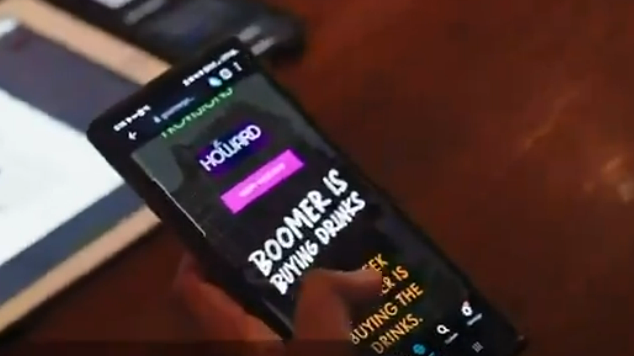Decentralized exchanges, or DEXs, are a new and exciting way to trade cryptocurrencies without needing a middleman. Unlike traditional exchanges where a company or organization manages everything, DEXs allow people to trade directly with each other. Let’s break down what a DEX is, how it works, and why it might be useful for you.
Understanding Decentralized Exchanges
A decentralized exchange (DEX) is a type of cryptocurrency exchange that allows for direct peer-to-peer transactions to take place online securely and without the need for an intermediary. This is a significant shift from centralized exchanges (CEXs) where a central authority or company facilitates trades and holds users’ funds.
How DEXs Work
DEXs operate on blockchain technology, utilizing smart contracts to execute trades. Smart contracts are self-executing contracts with the terms directly written into code, ensuring transactions occur only when certain conditions are met. This means trades are executed automatically and transparently, without the need for a middleman.
Comparing DEXs and CEXs
To better understand DEXs, it’s helpful to compare them to centralized exchanges (CEXs):
- Centralized Exchange (CEX): A platform like Coinbase or Binance where a central company manages trades, holds your funds, and provides services like customer support.
- Decentralized Exchange (DEX): A platform where users trade directly with each other using smart contracts, without a central authority.
Key Differences:
- Control and Ownership:
- CEX: The exchange holds your funds in their wallets.
- DEX: You keep your funds in your own wallet.
- Privacy:
- CEX: Requires personal information for account setup.
- DEX: No personal information needed, enhancing privacy.
- Security:
- CEX: Your funds are at risk if the exchange gets hacked.
- DEX: You control your funds, reducing the risk of hacks.
- Fees:
- CEX: Often higher due to middlemen and extra services.
- DEX: Generally lower as there are no intermediaries.
- Speed and User Experience:
- CEX: Usually faster and easier to use, with customer support.
- DEX: Can be slower and more complex, with no central support.
Key Features of DEXs
- Control and Ownership: You keep your cryptocurrency in your own wallet, so you don’t have to trust a company to hold it for you.
- Privacy: You don’t need to share personal information, which keeps your trading private.
- Transparency: Every transaction is recorded on the blockchain, so everything is open and clear.
- Lower Fees: With no middlemen, trading fees are often lower.
Types of DEXs
- Automated Market Makers (AMMs): These use smart contracts to create pools of money that you can trade with. Examples include Uniswap and SushiSwap.
- Order Book DEXs: These work like traditional exchanges with lists of buy and sell orders. Examples include Serum and dYdX.
- Hybrid DEXs: These mix features from both centralized and decentralized exchanges. Binance DEX is an example.
Benefits of Using a DEX
- Security: You keep control of your own money, reducing the risk of losing it to hacks.
- Censorship Resistance: No central authority can block your trades.
- Accessibility: Anyone with internet access can use a DEX, making it easier for people worldwide to trade.
Challenges and Risks
While DEXs offer many benefits, they also have some challenges:
- Liquidity: Some DEXs may not have enough people trading, which can make it hard to buy or sell large amounts of cryptocurrency.
- User Experience: DEXs can be tricky to use, especially if you’re new to cryptocurrency.
- Smart Contract Vulnerabilities: Bugs in the smart contracts could be exploited, potentially leading to loss of funds.
Getting Started with a DEX
- Choose a Wallet: Pick a cryptocurrency wallet that works with DEXs.
- Connect to a DEX: Go to the DEX website and connect your wallet.
We recommend Dexscreener.com - Select a Trading Pair: Choose the cryptocurrencies you want to trade.
- Execute the Trade: Enter the trade details and confirm the transaction.
How do you interact with a DEX?
- You can connect to a DEX like Uniswap using a crypto wallet such as Coinbase Wallet in either your web browser or on your smartphone. If you are just getting started we recommend using the Coinbase dapp wallet, available directly within your Coinbase app
- You’ll also need a supply of Ethereum to start trading on most DEXs, which you can get from an exchange like Coinbase. The reason you need some ETH is for paying fees (known as gas) that are required for any transaction that happens on the Ethereum blockchain. These are separate from the fees the DEX itself charges.
How do DEX fees work?
Fees vary. Uniswap charges a 0.3% fee that is split between liquidity providers, and a protocol fee could be added in the future. But it’s important to note that the fees the DEX charges can be dwarfed by gas fees to use the Ethereum network. The ongoing ETH2 upgrade (as well as a number of “layer 2” solutions like Optimism and Base) are designed in part to lower fees and speed up transactions.
Conclusion
Decentralized exchanges are changing how we trade cryptocurrencies by giving us more control, privacy, and security. While they have their own set of challenges, the benefits make them an attractive option for many traders. As the technology improves, DEXs are likely to become even more popular and user-friendly.
Explore DEXs and see how they can enhance your trading experience. Happy trading!
















